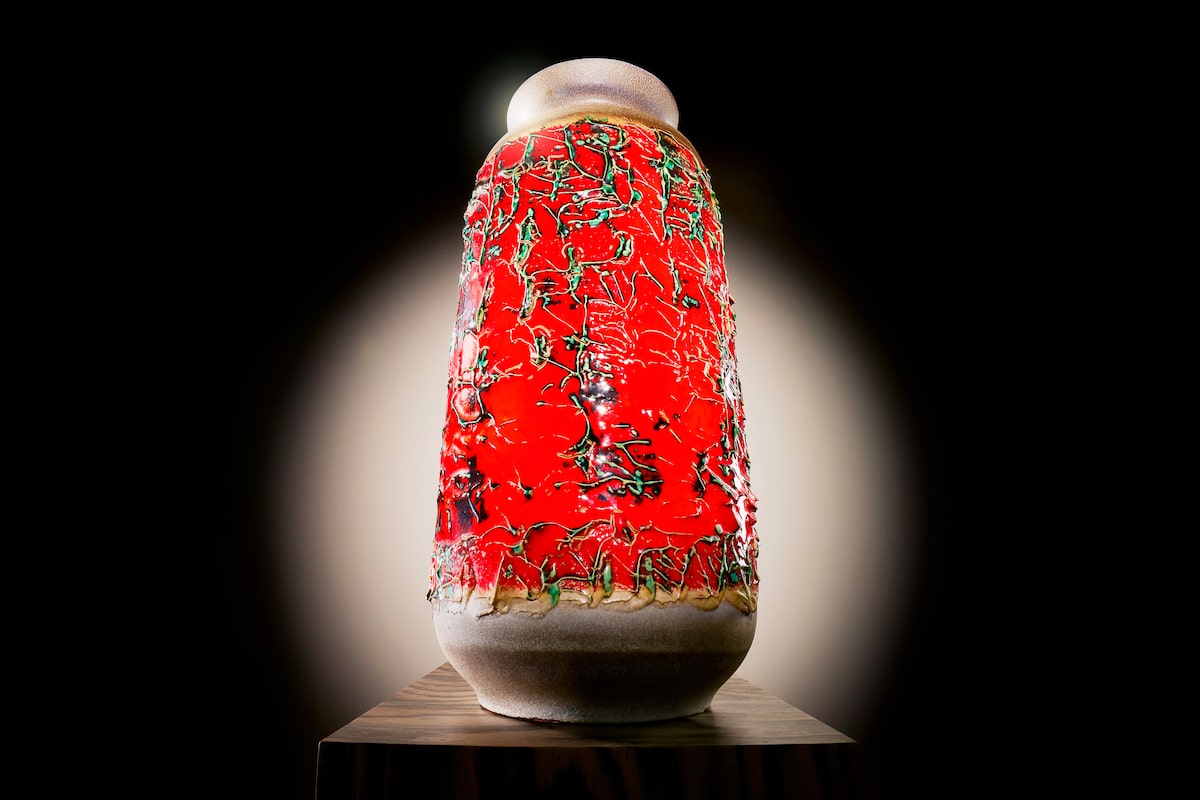
Vessel, $600 at Cynthia Findlay Fine Jewellery & Antiques.Brandon Titaro/The Globe and Mail
As a quirkier style of home decor has gained popularity – sorry minimalists! – pottery with personality becomes busier by the day. There are perhaps no more potent examples of these unique ceramics than pieces classified as “Fat Lava.”
Fat Lava pottery first appeared after the Second World War. It was primarily made in West Germany and the style became synonymous with the earthy colours and natural textures of mid-century modernism. A tell-tale sign of a piece’s pedigree lies on its underside that is often marked with the words “W. Germany” and numbers that signify its manufacturer.
“I started collecting Fat Lava pottery about five years ago,” says Carlo Colacci, founder of the furniture and decor retailer Bonne Choice in Toronto. “I stumbled upon a dealer with an amazing collection of West German pottery, and his explanation of the technique had me hooked.”
Clockwise from bottom left: Jug, $95 at Bungalow (bungalow.to). Amphora, $45 at Penny Arcade (pennyarcadevintage.com). Vase, $165 at Stay Home Furnishings (stayhomefurnishings.com). Vase, $400 at Cynthia Findlay Fine Jewellery & Antiques (cynthiafindlay.com). Vase, $85 at Mrs. Huizenga (instagram.com/mrs_huizenga). Jug, $65 at Avenue Daughter (avenuedaughter.com). Bloques plinths in Etorre Sottsass veneer (used throughout), starting at $425 at Bonne Choice (bonne-choice.com).Brandon Titaro/The Globe and Mail
To craft the flowing, pitted aesthetic that defines Fat Lava pottery, Colacci says a molten effect is “achieved by baking the pieces at 1,200 degrees, which causes the glaze to explode and create a specific texture.”
The technique continues to capture the imagination of contemporary artists including San Diego-based ceramicist Josh Herman and Brian Rochefort of Los Angeles, whose vibrant, tactile work was recently shown at fashion label Dries Van Noten’s The Little House exhibition space in L.A. There are still many decades-old objects on the secondhand market that play up volcanic glazes, from petite to outsized. Whether styled as a grouping or as a singular moment of visual impact, these ceramics are a sure-fire way to add drama to a coffee table or entryway.
Decanter and glass (from a set of six), $170 at Avenue Daughter (avenuedaughter.com).Brandon Titaro/The Globe and Mail
